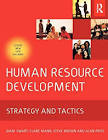|
|

Learning Organizations |
| Blog | Biography | Business | Children | Computing | Fiction | Cooking | Garden | History | Learning | Psychology | Travel | Erectile Dysfunction |
| BestBooks Home US Bestsellers UK Bestsellers France - Meilleurs Ventes Canada Bestsellers Germany Bestsellers Erectile Dysfunction |
 The Fifth Discipline: The Art and Practice of the Learning Organizationby Peter M. SengePeter Senge, founder of the Center for Organizational Learning at MIT's Sloan School of Management, experienced an epiphany while meditating one morning back in the fall of 1987. That was the day he first saw the possibilities of a "learning organization" that used "systems thinking" as the primary tenet of a revolutionary management philosophy. He advanced the concept into this primer, originally released in 1990, written for those interested in integrating his philosophy into their corporate culture. More information and prices from: Amazon.com - US dollars SeekBooks.com.au - Australian Dollars Amazon.ca - Canadian dollars Amazon.co.uk - British pounds Amazon.de - Euros Amazon.fr - Euros
 Human Resource Development: Strategy and Tacticsby Juani Swart, Clare Mann, Steve Brown and Alan PriceThis book examines the factors influencing the effectiveness of an individual's learning, how people learn and the assessment of training and learning needs, showing the significance of aligning departmental, group and individual HRD objectives with business goals. More information and prices from: Amazon.co.uk - British pounds Amazon.com - US dollars SeekBooks.com.au - Australian Dollars Amazon.ca - Cdn dollars Amazon.de - Euros Amazon.fr - Euros |
Learning OrganizationsWalton (1999) states of the concept of the learning organisation: 'Perhaps more than anything else it has helped to put HRD on the strategic agenda.' But the concept is evolving and remains fairly abstract or, as a senior consultant engagingly described it: 'quite fluffy' (Prothero, 1997, quoted in Walton, 1999). What follows is necessarily a considerably simplified consideration of the concept. The seminal ideas of the concept come from two main sources: Pedler et al's (1991) ideas on the 'learning company' and Senge's (1990) 'five disciplines'. According to Senge (1990) learning organisations are organisations in which: - the capacity of people to create results they truly desire is continually expanding;
This set of goals may seem somewhat ambitious but Senge contends that they can be achieved through the gradual convergence of five 'component technologies', the essential disciplines which are:
Source: adapted from Alan Price (2000) Principles of Human Resource Management: An Action-Learning Approach, Blackwell, Oxford.
Excerpts from Chapter 5, The Trainer's Handbook |
|
|
|
|
|
|
|
|
|
|
|
| Copyright © 2000-2005 Alan Price and BestBooks.biz contributors. All rights reserved. |